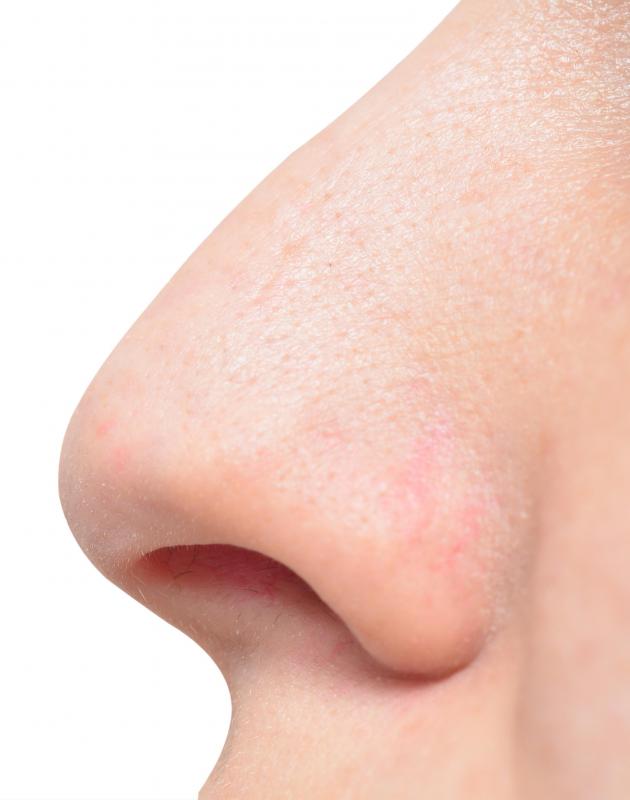At TheHealthBoard, we're committed to delivering accurate, trustworthy information. Our expert-authored content is rigorously fact-checked and sourced from credible authorities. Discover how we uphold the highest standards in providing you with reliable knowledge.
What is Otolaryngology?
Otolaryngology is a medical specialty which is focused on the ears, nose, and throat. It is also sometimes referred to as otolaryngology-head and neck surgery, since otolaryngologists are qualified to perform surgeries on the delicate and complex tissues of the head and neck. A practitioner of otolaryngology may also be called an ear, nose, and throat doctor, or an ENT for short. In addition to the general medical specialty of otolaryngology, doctors can also focus on a variety of subspecialties which are devoted to specific regions of the head and neck or particular systemic medical problems.
This medical specialty dates back to the 19th century, when doctors recognized that the head and neck had a series of interconnected systems. Doctors developed techniques and tools for looking at the structures of the head and neck, and a medical specialty was born. According to the American Academy of Otolaryngology, this specialty is the oldest medical specialty in the United States. The Academy also maintains an extensive museum which covers topics in otolaryngology which date back to the Ancient Greek era.

An otolaryngologist who specializes in the nose is known as a rhinologist, while otolaryngologists who focus on the ears are called otologists. An ENT can also focus just on disorders of the throat, in which case the doctor is called a laryngologist. Others specialize in reconstructive surgery, facial plastic surgery, sleep disorders, pediatric conditions of the ear, nose, and throat, and cancers of the head and neck. Doctors of otolaryngology use tools like otoscopes and laryngoscopes to examine their patients; these medical devices have also spilled over into other medical practices, since they are useful diagnostic tools.

Patients may go directly to a doctor trained in otolaryngology if they experience medical conditions which affect the head and neck. Other doctors may also refer patients to an otolaryngologist if they feel that they cannot treat the patient's condition. Some doctors in pediatric otolaryngology and reconstructive surgery also generously donate their time overseas to repair common medical problems like cleft lips and palates in the developing world.

Training in this medical specialty includes four years of medical school, followed by a brief general surgery residency and then a residency which focuses on head and neck surgery. Physicians who wish to pursue subspecialties must take fellowships which offer additional training. Once fully trained, an otolaryngologist can apply for board certification in the specialty, although board certification is not required for medical practice.
AS FEATURED ON:
AS FEATURED ON:















Discussion Comments
Is an Otolaryngologist qualified to treat patients with throat and neck cancer?
My husband has been diagnosed recently with COPD. He has always had a bronchial problem and handled that quite well through the years. He underwent heart bypass four years ago and has come through that well. He is being treated for COPD and has gone through viruses requiring antibiotics, etc. They have worked well on him but he now has a throat problem. He has a dry throat and now speaking with a raspy voice at times.
Do you have any ideas on what he can do for this raspy voice? Could eating and drinking dairy products have a bearing on this problem? Please advise. I would appreciate hearing from you.
Having rhinoplasty or septorhinoplasty actually falls under the field of otolaryngology as the nose work required for reconstructive and remodeling purposes requires a specialist.
While most people think of nose jobs as just for those looking to be more beautiful it is actually an important field for those who have issues with breathing. An ear, nose and throat doctor that performs surgery on the nose is not a plastic surgeon, though they may change the appearance of the nose during their work.
I think if you are having trouble breathing, and have suffered an injury to your nose it is a good idea to seek the help of a true ear, nose and throat doctor rather than a plastic surgeon.
I never knew that ear, nose and throat doctors were called specialists in otolaryngology. I have never actually seen that term used before despite having to deal with an ear, nose and throat doctor for my adult tonsillitis.
I believe it is always a good idea to see a specialist when you are experiencing problems with a particular part of your body. I find that my family doctor is best for pointing me in the right direction in regards to which specialist to see.
Adult tonsillitis can be quite serious, so if you suspect you have it from your swollen lymph nodes and sore throat, ask to see an ear, nose and throat doctor. In general, the surgery for tonsil removal as an adult is more involved.
Post your comments